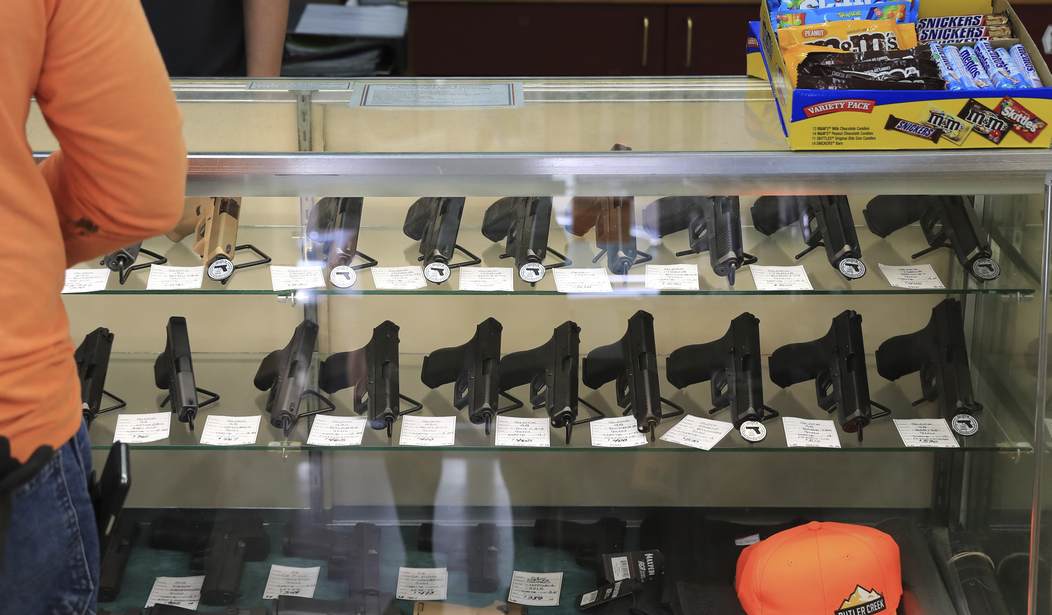California's law prohibiting residents from lawfully purchasing more than one firearm within a 30-day period doesn't fit with the national tradition of gun ownership, according to U.S. District Judge William Hayes. On Monday, the federal judge sided with Second Amendment groups, along with several FFLs and gun owners who had challenged the gun rationing law in federal court, granting summary judgement in their favor in Nguyen v. Bonta.
Bill Sack, the director of legal operations for the Second Amendment Foundation, one of the groups challenging the law, told Reuters that the California law was a clear violation of the 2nd Amendment. "Inherent to the right to keep and bear arms is the right to acquire them," Sack said.A spokesperson from the California attorney general’s office, which defended the law, said it was reviewing the ruling.The law, which was updated to include more restrictions in 2021 and in 2024, is meant to cut down on straw purchases of guns, in which one person buys a gun for another person who may be legally barred from purchasing it themselves.
That was the stated purpose of the law, but for many gun owners the artificially imposed limits on gun purchases seems like just another way for the state to harrass those exercising their Second Amendment rights.
In his ruling, Hayes first had to find that the Second Amendment protects the acquisition of firearms, as well as the right to keep and bear them. The judge cited several previous cases, including Ezell v. Chicago and Teixeira v. Alameda, in which courts agreed that the text of the Second Amendment necessarily encompasses "ancillary" rights like the right to acquire firearms and ammunition. California Attorney General Rob Bonta contended that the one-gun-a-month law “merely limits individuals to the purchase of one handgun or semiautomatic centerfire rifle every thirty days directly from licensed firearm dealers,” and “does not prevent anyone from acquiring firearms for self defense, keeping them for those purposes, and bearing the firearms for confrontation,” but Hayes pointed out that the Supreme Court has already determined that the right doesn't have to be completely negated in order for it to be infringed.
Hayes next looked at whether California had presented any evidence of a historical tradition limiting the purchase of firearms. Bonta argued that gun trafficking and "straw purchases" weren't an issue at the time the Second Amendment was ratified, and that the state is responding to an "unprecedented societal concern" that didn't exist in 1791 or 1868, so there was no need to find a historical twin to the challenged statute. Instead, Bonta argued that there were historical analogues that were a close enough fit to the one-gun-a-month law to suffice.
Hayes wasn't impressed by the laws Bonta cited, which dealt with gunpowder regulations, restrictions on the sale of firearms to Native Americans, restrictions on “deadly weapons”, and taxing and licensing regulations. None of those examples were "revelantly similar" to California's law in either their scope or purpose, according to Hayes, and since the state failed to meet its burden the judge granted summary judgement to the plaintiffs, including the Firearms Policy Coalition, Second Amendment Foundation, and San Diego County Gun Owners PAC.
Unfortunately, Hayes also stayed his decision for 30 days to allow Bonta time to appeal up to the Ninth Circuit, so the unconstitutional law is still being enforced for the time being. Still, Hayes's ruling is a big win for Second Amendment advocates, who continue to chip away at the wall anti-gunners have erected between Californians and their right to keep and bear arms. Congrats to all the 2A organizations and individuals who challenged the state's "one-gun-a-month" law, and here's hoping that this decision reverberates in the handful of other states that have similar gun rationing laws in place.









Join the conversation as a VIP Member